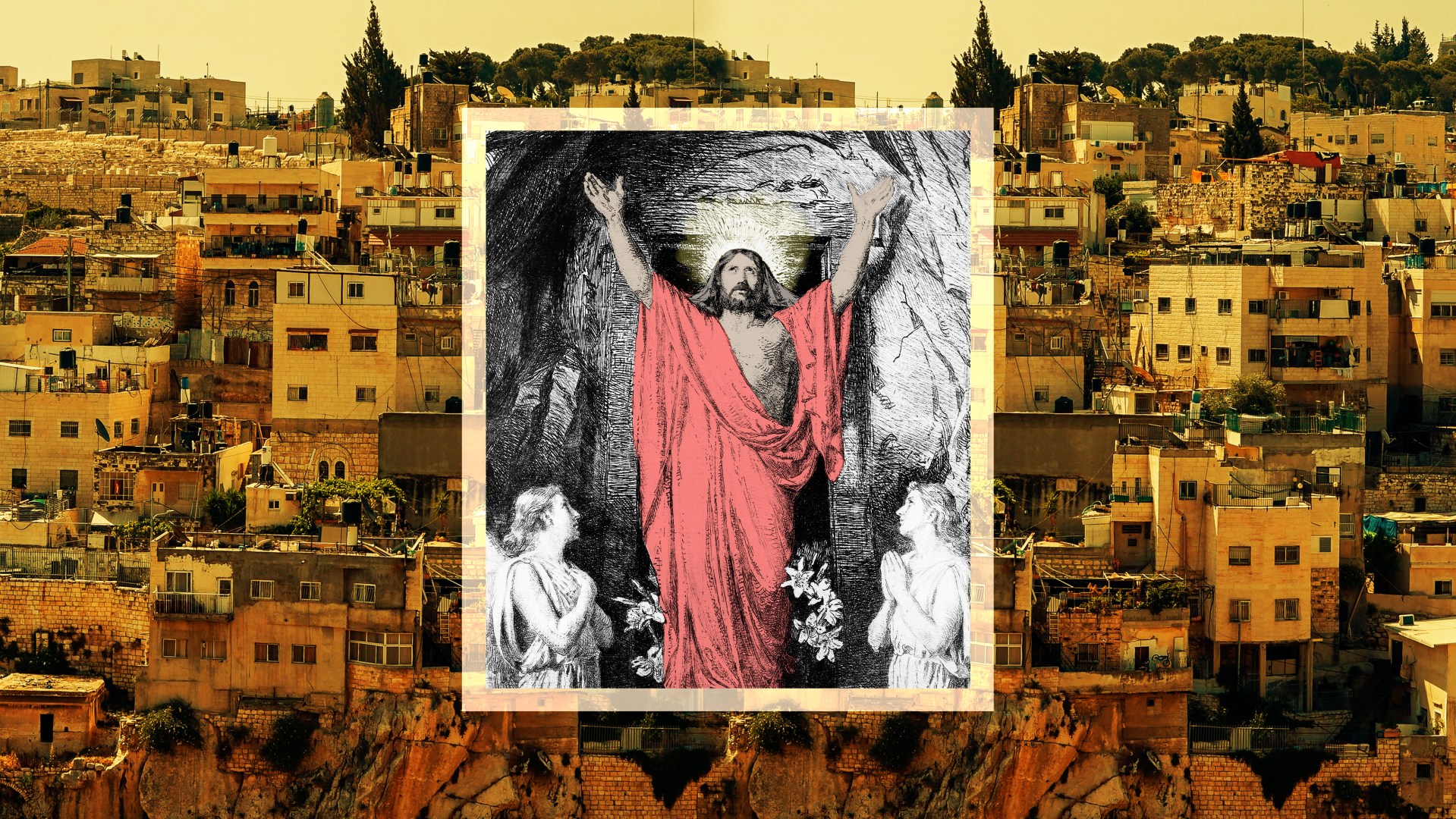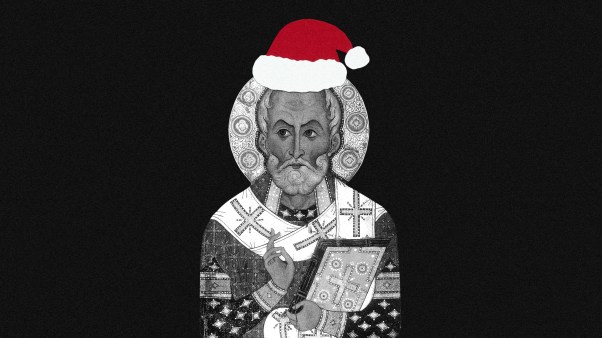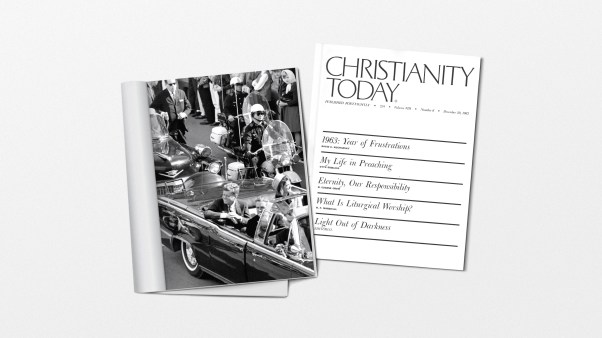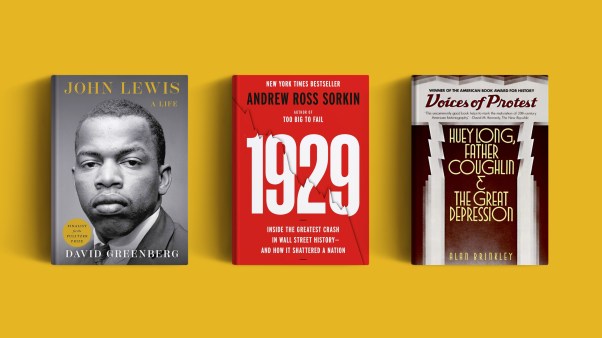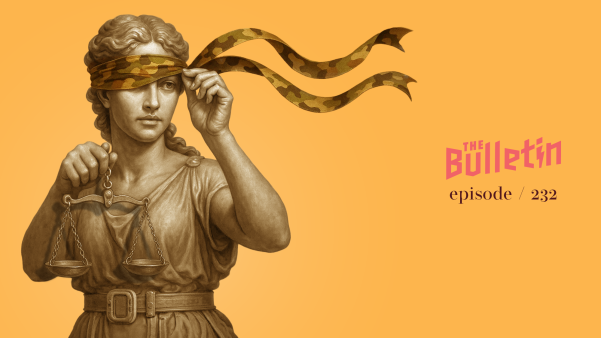During Holy Week, we consider how the Cross reconciles humanity with God. But for Palestinian Christians living in Israel who face oppression and discrimination on a regular basis, the Resurrection and its power to reconcile Jews and Gentiles offers them the greatest hope.
“The resurrection of Christ is the ultimate proof that the world can be changed,” said Palestinian Israeli theologian Yohanna Katanacho.
Palestinian Christians celebrate Easter on both Eastern and Western dates. Approximately 160,000 Palestinian Christians currently hold Israeli citizenship, and around a third of them live in the West Bank and Gaza.
Katanacho was born in 1967 and grew up amid the decades-long Arab-Israeli war that stoked hatred and enmity between Jews and Arabs. The former proponent of atheism accepted Christ at the age of 19 and is now the academic dean and biblical studies professor at Nazareth Evangelical College in Israel.
Katanacho’s book, Reading the Gospel of John through Palestinian Eyes, explores John’s reinterpretations of traditional Judaism in light of Christ. “John sees that having Christ is the biggest blessing ever, and without Christ, we have nothing (John 3:36). As a result, space, time, history, identity, and land are reread in light of the centrality of Christ,” Katanacho said.
Global books editor Geethanjali Tupps spoke with Katanacho about the significance of the Easter resurrection for Palestinian believers and how his reading of John’s gospel challenges the global church.
How did you become a believer?
My family was Roman Catholic, but I became an atheist as a teenager. When I was 19, I had a life-changing experience with God. At 3 a.m., I heard the sound of bells ringing. When I awoke, I was not able to move my hands or legs. I was terrified. I tried to liberate myself with every possible idea in my mind, but it didn’t work. At 5 a.m., I said to God, “If this is from you, I promise I will look for you.” The moment I said that, I was able to move again.
After this experience, I started visiting a small Christian and Missionary Alliance church in the Old City of Jerusalem. While there, I said to God, “How come you are the God of Israel and not the God of the Palestinians?” I prayed to give God my heart and mind and then dreamed of a face that brought peace and tranquility to my heart. When I woke up, I felt someone whisper in my ears, “Yohanna, this is the difference between grace and deeds. If you want to follow me by your own effort, you can’t. But if you are in Christ, you are protected and he is my gift to you.”
The barriers in my mind started collapsing and my spiritual journey began. Instead of advocating atheism, I started a Bible study at Bethlehem University, and other Christian ministries started growing in other Palestinian universities thereafter.
What led you to focus your scholarship on the Gospel of John?
When people around the world read the Gospel of John, they view it as anti-Semitic. That is unjust because, first of all, John is a Jew. This is an internal Jewish debate between Jews who followed Jesus Christ and Jews who did not. John needs to be vindicated in that area, and his message needs to be heard more clearly.
The idea for my book began when I asked the question “How is John struggling with his identity?” I noticed that the Gospel of John has a large focus on identity-related questions in the “I am” statements (John 6:35; 8:12; 10:7, 11; 11:25; 14:6; 15:1).
As a Palestinian who has Israeli citizenship, I wrestle with my identity among the Jewish majority. I want to celebrate the multiple identities that God has designed for me. However, in reality, these identities are in conflict because of political agendas and cultural values that are incompatible with Scripture. My multiple identities as Palestinian, Israeli, and follower of Jesus make some people feel uncomfortable, and they consequently seek to mute the parts of my identity that they do not like.
Studying the Gospel of John gives Palestinian Christians like myself an opportunity to explore the layers of complexity inherent in our identities. John is a follower of Jesus Christ in a majority-Jewish context. I am a Christian living amid a Jewish majority in Israel. We both struggle with our identity and how to lead missional lives in our particular contexts, which entails developing relationships that are rooted in loving God and neighbor and to bring the kingdom of love to a world full of hate.
What events in Holy Week does your book explore?
I write about the social-political realities of the Crucifixion on Good Friday. In many evangelical circles, the Cross represents redemption. But the Cross has other important theological dimensions as well, such as how it serves as a symbol of peacemaking.
Where Rome tried to usher in peace by the sword during the Pax Romana (Latin for “Roman peace”), Christ did so by dying on the cross. Where Rome introduced peace by silencing prophetic voices and perpetuating injustice, Christ’s peace offers forgiveness by transforming the oppressors’ hearts and opening doors for reconciliation with God (Luke 23:34, 47).
What forms of oppression do Palestinians living in Israel face?
We are treated as second-class citizens. We face oppressive laws and structural injustice. If you are a Palestinian Israeli citizen and you marry a Palestinian from the Palestinian territories, your spouse cannot acquire Israeli citizenship or even an ID card, which makes it extremely hard for them to work or get medical coverage from the Israeli government.
Israel has not established one single Arab town since its foundation. Some of these towns in the Negev have not been recognized by the Israeli government since Israel was founded in 1948. Palestinian Israeli towns receive limited funding, even though people pay their taxes in full. As a result, the infrastructure of Palestinian Israeli towns is deficient. They do not have medical, educational, or government services. People’s homes are continually demolished because they are viewed as illegal dwellings.
How do the events of Holy Week speak into your ongoing reality?
Jesus deals with the Roman Empire by exposing their penchant for violence on the cross. He displays their evilness through suffering with those who are suffering, as seen with the thieves who were crucified beside him (Luke 23:32–43).
Jesus supported women, the poor, and the marginalized not only by empowering them or healing them but also by creating a new world. The power of this new world is resurrection. Through Christ’s suffering of the cross, we come to this resurrection moment. We see that hope and transformation are possible.
The Resurrection ended enmity between Jews and Gentiles. The dawning of this new “civilization” ended a kingdom with second-class citizens and created a kingdom where all inhabitants are first-class citizens. Jews and Gentiles are equal in Christ.
Jesus’ resurrection encourages me to see how love, mercy, and equality all point to this new “civilization,” which Christians are missionaries of. How can we offer justice and true forgiveness in paving the way toward reconciliation? We do so by suffering with those who are suffering unjustly and by fighting injustice because it hurts both Jews and Palestinians.
Why is your book important for the global church?
My book invites the global church to reflect not only on the Gospel of John but also on the contextual theology of Palestinian citizens of Israel, particularly in the issues of equality and identity.
Geopolitical discussions often focus on creating two separate states, one for Palestine Arabs and another for Israeli Jews. But more than 20 percent of Israeli citizens are Palestinian. When I speak Hebrew to my Jewish neighbors, my accent reveals that I am a Palestinian citizen of Israel. If a bomb threat arises in Israel, I too am under threat. I will not be considered an Israeli citizen but a Palestinian. Part of my identity will be under attack.
The same situation happens with Peter. When Peter goes to Jerusalem, his accent reveals his Galilean roots (Matt. 26:73). Peter feels the tension of being a Galilean among Jews in Jerusalem. He denies his cultural and linguistic identity, leading him to deny his ethical standards and consequently deny Christ.
This has contextual and missional value: How can we affirm our linguistic and cultural identities and affirm Christ at the same time? What should I do as a Palestinian citizen of Israel, and how can I prevent my Christian faith from being marginalized? These are legitimate questions for me.
Why is your book also important to Palestinian readers?
Jews want Jesus to be a Jew. Palestinians want Jesus to be a Palestinian. I think both approaches are nationalistic and detract us from worshiping Jesus as our Lord and Savior.
There is a prevalent belief that the state of Israel is for people who are ethnically Jews. This excludes people who are not Jews even if they are Israeli citizens. This is not the gospel understanding of Jesus’ Jewishness.
Jesus’ Jewishness can be understood eschatologically. He redefines Judaism in inclusive ways and has embodied its deepest hopes. He is the perfect human who represents a loving and welcoming humanity, rather than one that is exclusively ethnocentric.
The Old Testament dreamed about having the law written on Israel’s heart (Jer. 31:33), which refers to knowing God deeply and personally. This dream is embodied in Jesus. New Testament authors like Paul understood that Jesus’ Jewishness is eschatological when he said that circumcision is not “merely outward and physical” but requires an inward transformation where our hearts are circumcised by the Spirit (Romans 2:28–29).
Jesus’ eschatological Jewishness is not a threat to Palestinians. It is a Jewishness that invites Palestinians and Israelis to be one in Christ, rather than an exclusive Jewishness that pushes people of other ethnicities out. This is what the church desperately needs to proclaim.

